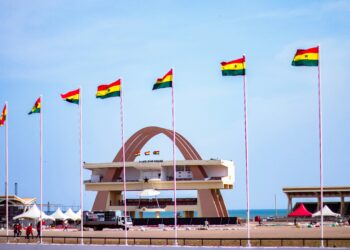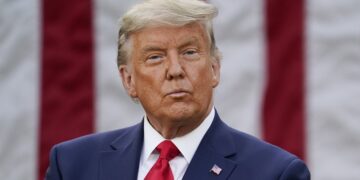In an escalation that now marks a new low in U.S.-Latin American relations, President Donald Trump has declared economic war on Colombia, vowing to impose higher tariffs and cut off all payments in a bitter feud over the drug trade.
The decision, announced aboard Air Force One on Sunday, comes after a week of fiery accusations. Trump labeled Colombian President Gustavo Petro an “illegal drug leader,” a stunning insult that Bogotá condemned as an “extremely serious act” that “undermines the dignity” of the nation.
From Allies to Adversaries
The core of the conflict is a fundamental disagreement over strategy and blame. Trump, who has long accused Colombia of being complicit in the drug trade, stated bluntly, “They don’t have a fight against drugs — they make drugs.” This rhetoric signals a sharp about-turn from treating Colombia as a partner to treating it as a source of the problem.

The trigger for this latest crisis is a series of U.S. military strikes in the Caribbean against vessels allegedly smuggling drugs. While U.S. Defense Secretary Pete Hegseth claimed one such strike targeted a vessel affiliated with the leftist National Liberation Army (ELN) rebel group, President Petro provided a starkly different account, asserting the boat belonged to a “humble family.”
This contradiction lies at the heart of the dispute. The U.S. justifies its military actions on intelligence of narco-trafficking, while Colombia and human rights groups condemn them as reckless operations that kill civilians and violate sovereignty.
Meanwhile, Trump’s threat to wield tariffs as a weapon raises immediate questions. The proclamation, “I’m stopping all payments to Colombia,” is particularly ambiguous, given his administration’s prior shuttering of USAID, the U.S.’s primary humanitarian aid arm.
Colombia, which currently pays a 10% tariff on most imports to the U.S., now faces the prospect of seeing its key trade relationship weaponized. In response, Colombia’s foreign ministry has vowed to seek international support, framing the confrontation as a defense of its national autonomy against baseless and offensive accusations.
Why It Matters
Trump’s gambit is a high-risk escalation that substitutes diplomacy with economic coercion and public insults. By branding a head of state a “drug leader,” he has personalized the conflict and closed doors to back-channel negotiation. However, the most profound flaw in this strategy is its potential for a devastating boomerang effect.
The plan to use tariffs as punishment ignores the complex realities of the drug trade, which is driven by U.S. demand. By destabilizing Colombia’s legitimate economy and impoverishing rural communities, these tariffs risk creating the exact conditions that drive more farmers to coca cultivation—the very outcome the policy claims to prevent. This approach not only lacks a clear path to reducing narcotics flow but actively risks accelerating it, destabilizing a key regional partner while worsening the problem at home.
















